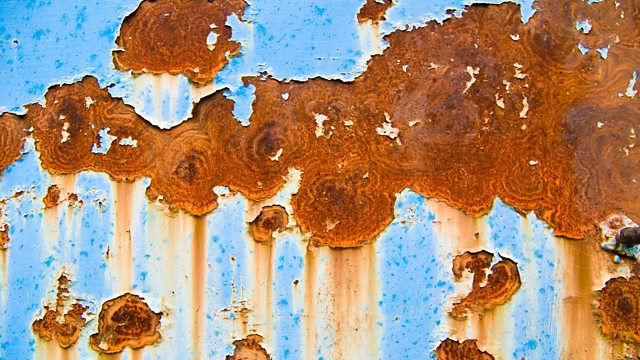Free Radicals
Melvyn Bragg and guests discuss the reactive atoms and molecules, with single unpaired electrons, linked to the process of ageing as well as normal cell functioning
Melvyn Bragg and guests discuss the properties of atoms or molecules with a single unpaired electron, which tend to be more reactive, keen to seize an electron to make it a pair. In the atmosphere, they are linked to reactions such as rusting. Free radicals came to prominence in the 1950s with the discovery that radiation poisoning operates through free radicals, as it splits water molecules and produces a very reactive hydroxyl radical which damages DNA and other molecules in the cell. There is also an argument that free radicals are a byproduct of normal respiration and over time they cause an accumulation of damage that is effectively the process of ageing. For all their negative associations, free radicals play an important role in signalling and are also linked with driving cell division, both cancer and normal cell division, even if they tend to become damaging when there are too many of them.
With
Nick Lane
Professor of Evolutionary Biochemistry at University College London
Anna Croft
Associate Professor at the Department of Chemical and Environmental Engineering at the University of Nottingham
And
Mike Murphy
Professor of Mitochondrial Redox Biology at Cambridge University
Producer: Simon Tillotson
Last on
More episodes
Previous
Next
LINKS AND FURTHER READING
Μύ
READING LIST:
Don Canfield, Oxygen: A Four Billion Year History (Princeton University Press, 2015)
Michael J. Davies and Roger T. Dean, Radical-Mediated Protein Oxidation: From Chemistry to Medicine (Oxford University Press, 1998)
Jacques Fossey, Daniel Lefort and Janine Sorba, Free Radicals in Organic Chemistry (John Wiley & Sons, 1995)
B. Giese, Radicals in Organic Synthesis: Formation of Carbon-Carbon Bonds (Pergamon, 1986)
Barry Halliwell and John Gutteridge, Free Radicals in Biology and Medicine (Oxford University Press, 2015)
Nick Lane, Oxygen: The Molecule that Made the World (Oxford University Press, 2002)
Broadcasts
- Thu 1 Nov 2018 09:00Βι¶ΉΤΌΕΔ Radio 4
- Thu 1 Nov 2018 21:30Βι¶ΉΤΌΕΔ Radio 4
Featured in...
![]()
Science—In Our Time
Scientific principles, theory, and the role of key figures in the advancement of science.
In Our Time podcasts
Download programmes from the huge In Our Time archive.
The In Our Time Listeners' Top 10
If you’re new to In Our Time, this is a good place to start.
Arts and Ideas podcast
Download the best of Radio 3's Free Thinking programme.
Podcast
-
![]()
In Our Time
Melvyn Bragg and guests discuss the ideas, people and events that have shaped our world.



